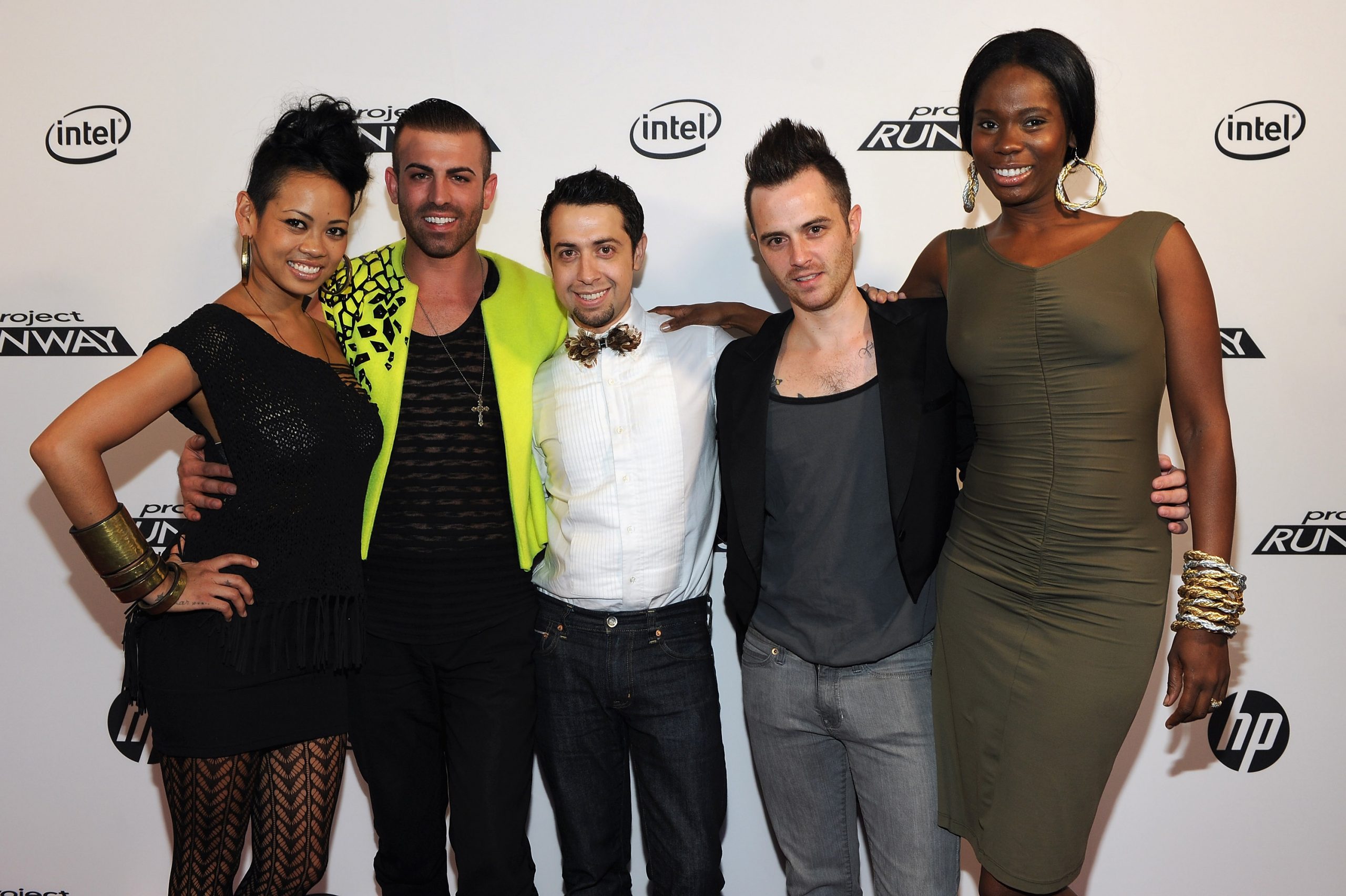Embracing Life After Cancer
- "Project Runway All Stars" fashion designer Anthony Ryan Auld, 40, is among the winners of the long-running popular reality TV show competition. He's also a two-time cancer survivor who refused to let his diagnosis define him.
- Ryan was diagnosed with testicular cancer in 2008 and again in 2013. He underwent chemotherapy treatment to overcome the disease.
- Testicular cancer begins in the cells that make sperm. Fortunately for men with this kind of cancer, "it can be cured, even if diagnosed at an advanced stage," according to the National Cancer Institute. It often presents a painless mass in the testicle.
- Testicular cancer often comes with stigma and shame for people diagnosed with the disease. One survivor who overcame the cancer told SurvivorNet that he encourages patients to avoid victimhood to offset the stigma.
"Project Runway All Stars" winner Anthony Ryan Auld, 40, is one of the fan favorites from the popular reality competition show. Amid his rise in the fashion industry, he also overcame cancer twice. Despite battling testicular cancer, he didn't let the disease destroy his desire to succeed in life.
"He's a great example that you don't become a different person once you're diagnosed with cancer," his friend Dr. Mary Kathryn Rodrigue told 225 Magazine.
Read More
Aside from making an impact in the fashion industry, Auld also dealt with cancer. He was diagnosed with testicular cancer in 2008 and overcame the disease a year later, according to The Reveille, Louisiana State University’s (LSU) student newspaper.
Testicular cancer, which is rare, begins in the cells that make sperm. Fortunately for men with this kind of cancer, "it can be cured, even if diagnosed at an advanced stage," according to the National Cancer Institute.
"Testicular cancer often presents with a painless mass in the testicle," Dr. Bradley McGregor, the Clinical Director of the Lank Center for Genitourinary Oncology at Dana-Farber Cancer Institute, previously told SurvivorNet.
"However, there may not always be a palpable mass and it may just be a change in the way a testicle feels or a heavy sensation," Dr. McGregor continued.
View this post on Instagram
Despite overcoming testicular cancer in 2009, the LSU graduate had a recurrence of the cancer in 2013.
"I actually bought a mug with 'Why me?' on it to remind myself not to ask that question," Auld said of his second diagnosis.
Auld’s treatment involved chemotherapy, which uses medication designed to kill the cancer cells.
"It made me tired all the [expletive] time…But I didn't want that to take me off-track from where I'm going. It was just a little wrench in the engine," Auld said of his treatment.
Throughout his cancer journey, Auld chose to stay focused on his goals and not let cancer deter him. In fact, he used his cancer journey to make himself stronger and more determined to make an impact.
"He's a great example that you don't become a different person once you're diagnosed with cancer," Dr. Rodrigue said of her friend.
After overcoming testicular cancer for a second time, Auld founded ROAR, “a non-profit foundation that gives voice to those with inspiring stories of survival in the face of adversity,” according to his website.
"It's about celebrating a life adversity that you've overcome…Why not be vocal about it," Auld went on to say about his foundation.
How Other Testicular Cancer Survivors Embraced Life After Their Diagnosis
Anthony Ryan Auld’s pathway taken for his testicular cancer journey mirrors other survivors who battled the disease and refused to let it define them.
Steven Crocker was just 25 years old when he noticed some tell-tale signs of testicular cancer diagnosis. His left testicle became increasingly tender and slightly enlarged.

"I had been Googling my symptoms and would always see testicular cancer in the results," Crocker, now 28, previously told SurvivorNet, "but I never wanted to go to the doctor to hear those words, so I put it off."
He recalled the day he discovered a lump near his lower back.
"I was driving home from work in the spring of 2019 and thought that my shirt was bunched up behind me," he recalls. "I reached back to fix it and it was not my shirt."
The unusual feeling in his lower back became more noticeable to Crocker when he sat in a chair.
Crocker was soon diagnosed with testicular cancer, and he started receiving chemotherapy.
Crocker's experience inspired him to launch a podcast called, "It Takes Balls" to help provide people diagnosed with testicular cancer with a positive resource for overcoming the disease that can be rife with stigma.
Testicular Cancer Resources
How to Deal With Stigma Around Testicular Cancer
"Shame is an important topic when it comes to cancer," Tripp Hornick told SurvivorNet in an interview.
Hornick is a testicular cancer survivor who was diagnosed with the cancer when he was in college at age 21. Acknowledging the anxiety surrounding a cancer diagnosis especially as a young person he stresses avoiding victimizing yourself.
WATCH: Dealing with the stigma surrounding testicular cancer.
"There’s nothing good and nothing positive about sending a message as a victim and a culture of victimhood. The way to turn the shame upside down, if you have it, is to show how strong you are," Hornick said.
He went on to suggest cancer warriors who focused on what makes them feel encouraged and strong go on to live successful and happy lives. Embracing the joys in life and turning adversity into triumph such as Anthony Ryan's non-profit or Crocker's podcast are pathways to model.
Questions for Your Doctor
If you are facing testicular cancer and want to better understand your diagnosis, consider the following questions for your doctor.
- Has my testicular cancer spread beyond the testicle?
- What stage is my cancer in?
- What other tests should I expect as I continue learning more about the disease?
- What are my treatment options?
- What side effects should I expect with the recommended treatment?
Learn more about SurvivorNet's rigorous medical review process.

